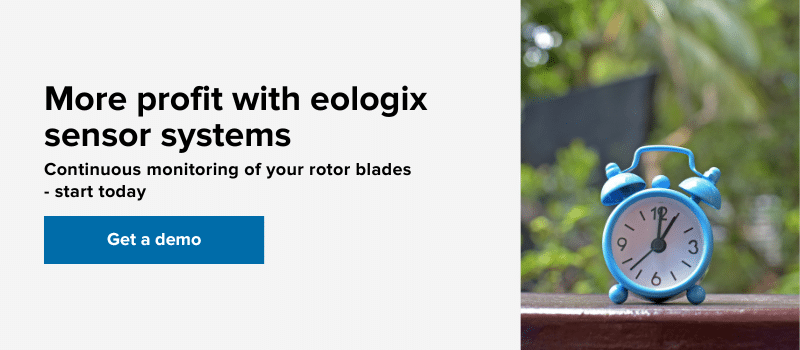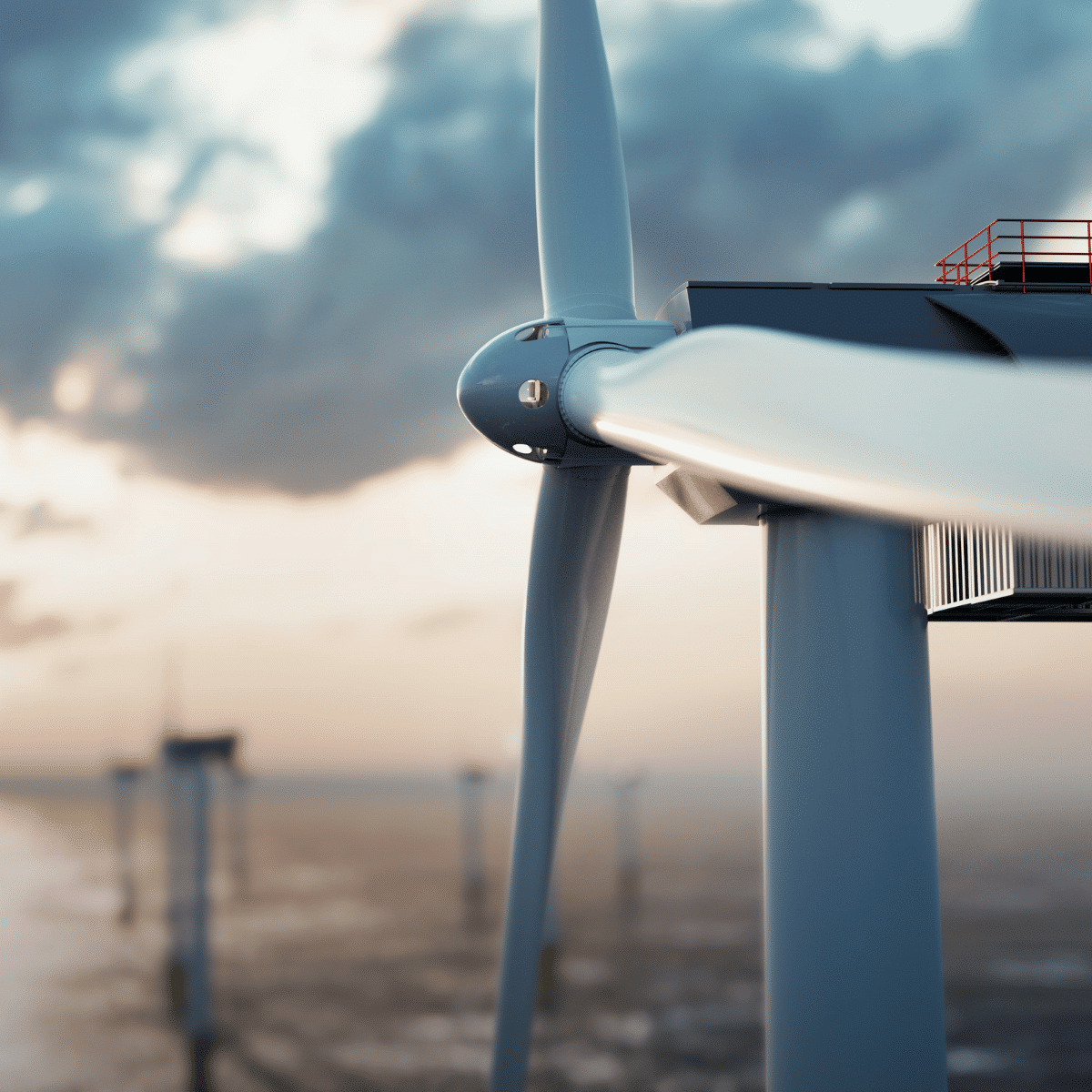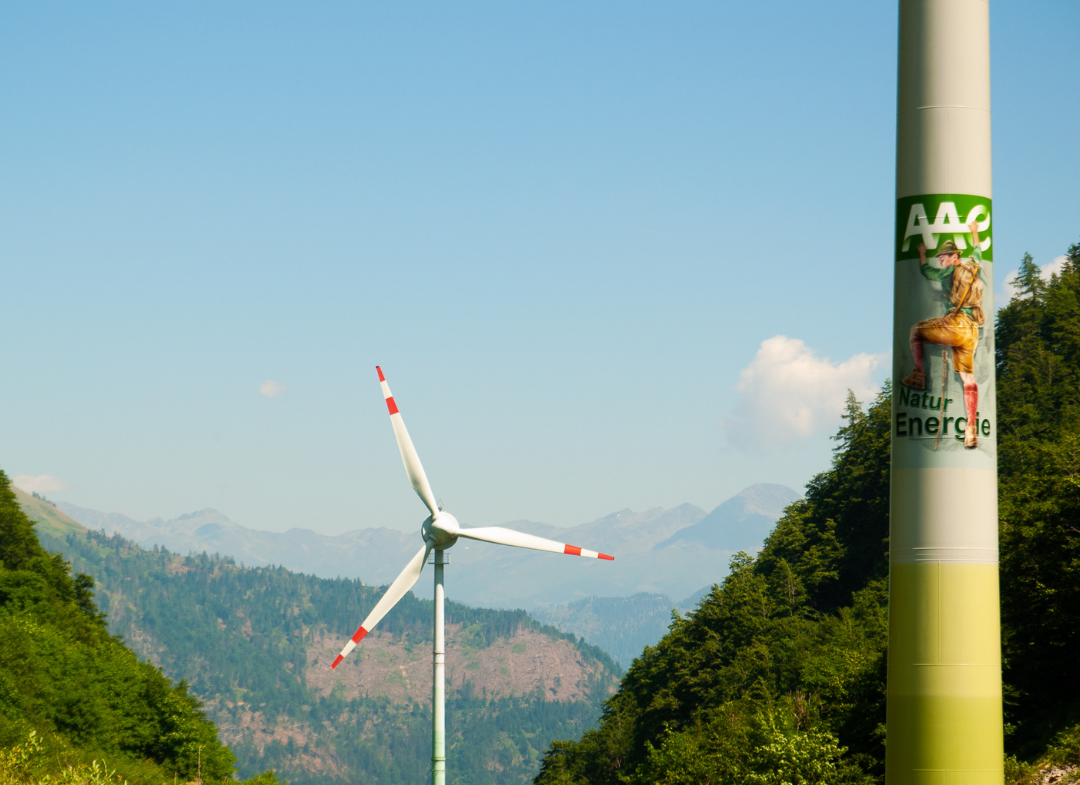Validation: Data matches with external laser measurement
To illustrate that the data from our relative pitch angle measurement, captured by the eologix:align system directly on the rotor blade, matches with the results from external laser measurements on the ground, an eologix:align system was successfully installed on a Nordex N100 wind turbine in Germany. In calendar week 16, a ground-based laser measurement was subsequently conducted at the same turbine – the results are provided below.
Wind farm: Germany
Wind turbine type: Nordex N100
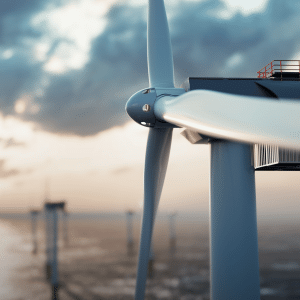
Validation: Data matches with external laser measurement
To illustrate that the data from our relative pitch angle measurement, captured by the eologix:align system directly on the rotor blade, matches with the results from external laser measurements on the ground, an eologix:align system was successfully installed on a Nordex N100 wind turbine in Germany. In calendar week 16, a ground-based laser measurement was subsequently conducted at the same turbine – the results are provided below.
Why should the relative pitch angle be measured continuously?
- Efficiency Increase
By continuously measuring and monitoring these errors, operators can detect and correct deviations at an early stage. - Damage prevention
Premature deterioration and damage to the rotor blades is prevented. This helps to minimise expensive repairs and extend the service life of the turbine. - Data Collection and Analysis
Continuous measurement provides valuable data that can be used to analyse and maintain the turbine performance planned for the site. - Safety
Regular measurements can detect potential hazards in advance to prevent accidents or damage.
How does eologix:align work?
The measurements with eologix:align are carried out synchronised and multiple times a day over defined time intervals in order to record multiple rotor rotations and different operating conditions. From the measured accelerations, the rotational speed of the rotor and the alignment of its blades to each other are calculated using appropriate algorithms (see figure 1 calendar weeks 13 to 22).
A subsequent independent on-site measurement of the pitch angle deviations using external laser measurement came to a comparable result (see figure 2).
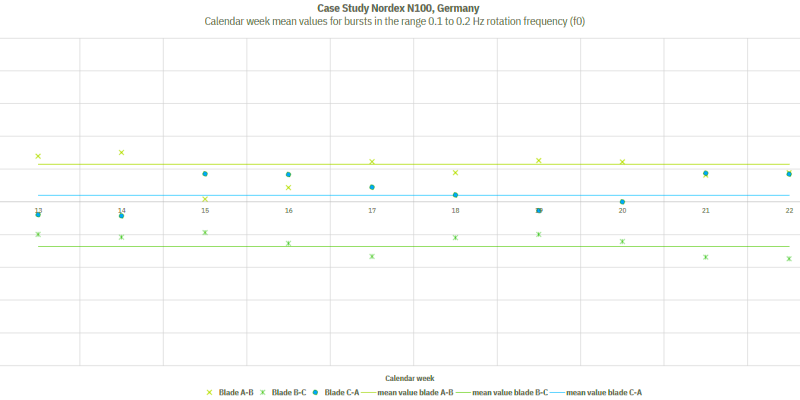
Figure 1: No significant deviations between the blade pairs can be seen during the measurement period
eologix:align fulfils its promise – Data matches external survey
The case study demonstrates that the results of eologix:align correlate extremely well with the results of the external measurement (see Figure 2).
No relative blade angle errors were detected during the case study period (deviations ± 0.6 degrees). Nevertheless, it is recommended to continuously monitor blade angle misalignments as this can help to identify potential problems at an early stage.
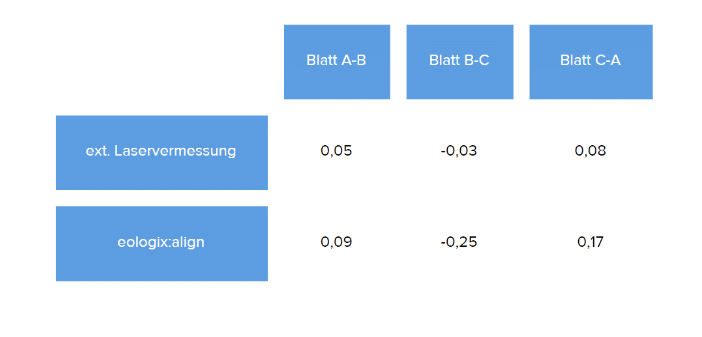
Figure 2: Comparison of the relative pitch angle misalignments of the eologix:align-results and the external laser measurement-results
Conclusion
In this case the available case study proves that the eologix:align system successfuly measured the relative pitch angle on a Nordex N100 turbine and the results matched well with the external laser measurements. Even though no pitch angle errors were detected in the time span of the measurements, it is highly recommended to continuously monitor to detect and react to certain problems in an early stage. This is important because different factors like maintenance work, system errors etc. can lead to deviations. Over all this example underlines the efficiency and precision of eologix:align in the measurement of relative pitch angles on wind turbines.
